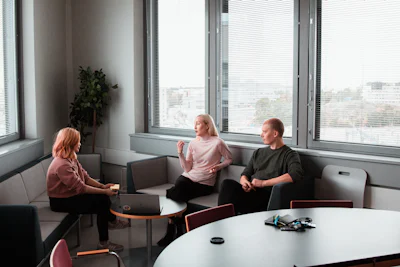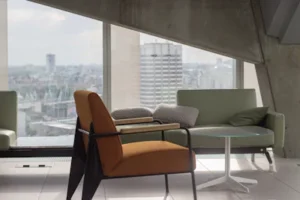Thriving as an ADHD Therapist in Private Practice
By Kristen Dammer
I am so grateful that ADHD (Attention Deficit Hyperactivity Disorder) is more openly talked about, understood, and researched that it has been in the past. As an ADHD therapist and clinical supervisor in private practice, I love learning about all the new developments.
Understanding ADHD as a neurodevelopmental disorder that makes it difficult to regulate anything—emotions, energy, mood, executive functioning, finances, hygiene, consistent routines, directions–the list goes on and on—helps keep my capacity or daily energy at a balanced level.

ADHD and Energy Levels
ADHD impacts regulation. If you are a therapist with ADHD, you will struggle with those executive functioning and regulation pieces a bit differently than a non-therapist with ADHD. Energy is one symptom that is important to understand as a therapist or clinical supervisor in private practice. When you have ADHD, your energy burns up more quickly than the neurotypical person.
Think about how much energy it zaps to ruminate about the following:
- That one thing you shouldn’t have said in session
- Having too many clients scheduled back-to-back with no breaks
- Forcing yourself through situations/tasks that you do not find fun or stimulating
- Saying yes too often to try to “prove yourself”
- Not understanding that scheduling new client call screens is obscenely difficult and needing strategies to help, or
- Procrastinating those progress-to-date notes or treatment plans
All of these, and many other examples, burn energy. Energy is what we need to feel confident and attuned as a therapist. Here are a few points to help conserve energy when you are a therapist or supervisor with ADHD in private practice.
Be Kind and Gentle to Yourself
I like to end my sessions by saying “Be kind and gentle to yourself,” I hope that my clients do not see this as a Band-Aid fix–like telling the depressed person to” just be happy.”
When you have more understanding of our ADHD, especially as therapists, you can have more room to adjust your ways of completing tasks and regulating yourself. A bit more room is all I try to ask myself for every day–room for grace and compassion with myself.
When I can push a corner of compassion for myself into my day, I find that I am less frozen and less overwhelmed, thus my energy is more conserved. I can ask myself “Where do you want to see change in your life today” versus “OMG you are so stupid, you are never going to succeed.”
When I’m kind and gentle, I understand that my brain is pleasure-seeking, so I can adapt the way I “operate” in the world accordingly with less shame (shame is a pool that is always soaking my ankles and feet, meaning the shame doesn’t completely leave). With compassion, the pool level stays lower.
I’m not treading the shame-filled water as often with kindness for myself. Compassion allows me to know myself and what I need daily to not deplete my energy. I can push the needle forward a tiny bit and celebrate that this is a success.
Energy Zappers for ADHD Therapists
Here are a few energy zappers as a therapist in private practice, regardless if you have ADHD or not:
- Scheduling too many clients in a row, without time for sensory breaks or transitions
- Hyperfocusing too long on a task
- Ruminating too long
- Pushing yourself too hard on a nonpreferred task
- Focusing too much on the negative and forgetting what makes you a good therapist
- Not allowing yourself to bounce around more (masking symptoms) when you are in non-client meetings
- Moving into a rigid overcorrection mode
Put Self Care on your List Daily
 If your self-care decreases, everything can spiral. More than other therapists, neurodiverse therapists, and supervisors need to make self-care a priority. Because ADHD is about regulation, if you are off track with the basics of exercise, nutrition, and sleep, your energy and emotions become dysregulated and this can interfere with client care.
If your self-care decreases, everything can spiral. More than other therapists, neurodiverse therapists, and supervisors need to make self-care a priority. Because ADHD is about regulation, if you are off track with the basics of exercise, nutrition, and sleep, your energy and emotions become dysregulated and this can interfere with client care.
When I feel drained or on edge, sitting through a 55-minute session is sometimes unbearable. My mind wanders more, I feel less confident because I am less grounded. My working memory decreases more and my word recall glitches like an unstable internet connection.
Because ruminations increase (remember the same hyperfocus we can apply to a fun and stimulating task, we turn inwardly to ruminations), I just overall feel less grounded and mis-attuned to my client. I also can ruminate that the client is experiencing my insecurities, which creates a spiral of those distorted core beliefs such as, “OMG, my client knows I’m stupid.”
Remembering to just add “movement” and “nature” every day versus that all-or-nothing thinking helps with stability. You can apply the same kind of “chunking it down to bite-size pieces” that we tell our clients in relation to our self-care. For nutrition, I try to gently guide myself to at least 3 salads a week vs the all-or-nothing alternative. I make keeping track of water intake more stimulating by having colorful magnets on my fridge and adding one every time I have a glass of water (of course, this system comes and goes—progress not perfection).
I try to combine my exercise with a social aspect because we need socialization (with our tribe) often. Whatever your skill for continuing with self-care even after one or more systems fail, the important point is to keep trying and tweaking the plan because self-care is most important when living with ADHD.
Get Support of Your Own
Lastly, I found that without time with “my tribe” I am not replenished. For me, time on the volleyball court with my peeps is my paradise. The court is a place where I feel completely confident and myself. I can bounce around, hit something really hard, and say impulsive statements to my teammates. Even if I go to volleyball fully depleted, I always leave feeling invigorated.
What is your space that fulfills you? Where can you be 99% yourself? Adding more time with this important quadrant of life, can be transformative for therapists with ADHD. Most of my friends also have ADHD, so I enjoy spending time with them, where we can laugh and joke with each other.
All the research says that spending time with other humans often equates to more happiness. When you have ADHD, you tend to have a lot of experiences where in social situations, you feel like too much or not enough. Finding a safe place for yourself to socialize can be difficult. Challenging those past experiences with CBT and/or creating a new narrative for yourself is paramount.
Joining a neurodivergent support group, finding a supervisor who understands ADHD, connecting with your ADHD client experiences with appropriate situations where you self-disclose your ADHD, and socializing with non-judgmental colleagues can be additional spaces to gain social support thus increasing your energy.
I also understand that our barometer for socialization is touchy. We often need to find that balance between socialization zapping too much energy (these are usually those spaces where you have to mask more) or socialization adding to our tanks. What is most important is to understand your unique balance and give yourself “outs” if you find too much energy is burning up with socializing.
If you are a therapist or a clinical supervisor with ADHD, what do you struggle with? How do you maintain your energy? When you deplete your energy, being a therapist is more difficult. You might mis-attune, have more dysregulation, have an increased difficulty with word recall, or have a difficult time attending to client needs.
Understanding your ADHD in terms of energy allows more space for compassion and less burnout. Checking in with yourself several times a day with “What is your capacity right now” or “What could you do” or What would help you complete this task by making it more fun and stimulating allows for spaces of compassion. These questions work with your ADHD and help maintain energy. They allow your pleasure-driven brain to say “It’s okay…we got this”. The wonderful, helpful praise and acknowledgment will increase your dopamine and keep the pool of shame water at your ankles.
How we can help
If you are interested in working with a clinical supervisor who understands the challenges of being a therapist with ADHD, check out Kristen Dammer’s Consultation Group for ADHD Therapists, a safe space for therapists for ADHD to discuss clinical cases and your growth and development as a therapist.
Author Bio

Kristen Dammer is a clinical supervisor, therapist, and blogger with Firelight Supervision and Catalyss Counseling. Kristen specializes in trauma, ADHD, and perinatal counseling with adults and is trained in EMDR. Kristen enjoys providing clinical supervision and consultation to beginning to advanced clinicians in private practice, hospital, and agency settings.



